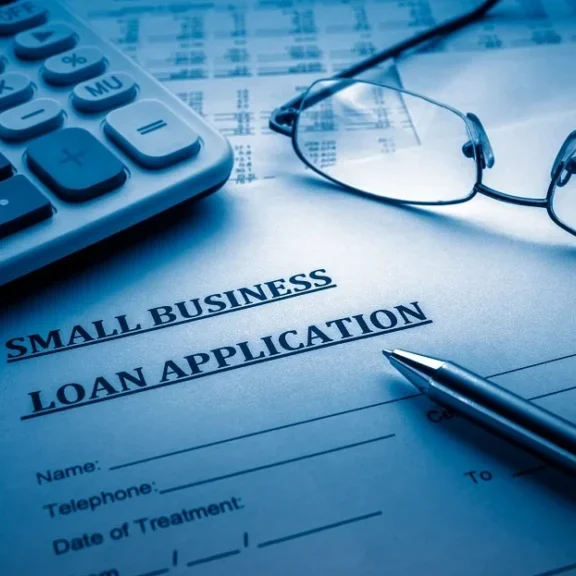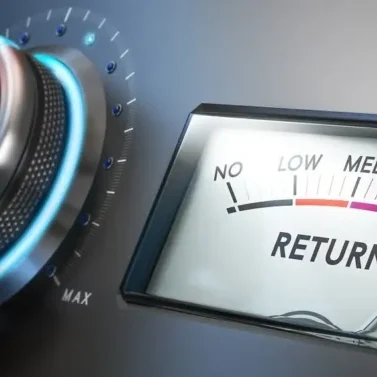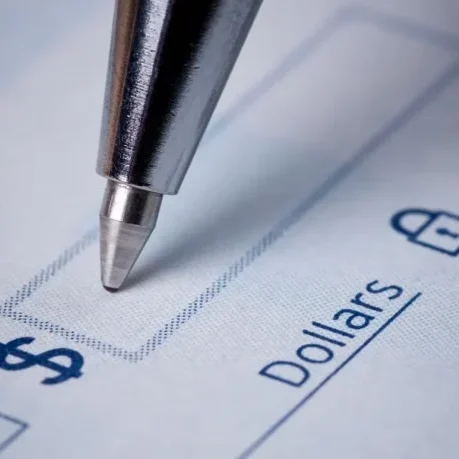How to Finance a Car Wash Business Acquisition
In this article, we discuss how entrepreneurs and small business owners can finance the acquisition of a car wash. We cover the following subjects:
- Ways to finance the acquisition
- The lender's perspective
- Improving and adding machinery
- Common obstacles and problems
- Transaction structure
1. How are car wash acquisitions financed?
Entrepreneurs and small business owners who want to finance the purchase of an existing business have a few options. Most transactions under $5,000,000 are funded using one or more of the following alternatives.
a) Your own funds
The simplest way to buy a car wash, or any business, is to use your own funds. This approach side-steps all the lender requirements and stipulations. You are free to do as you please. There is one major problem with this strategy, though. Few entrepreneurs have the funds to buy a business outright. However, they are still expected to contribute funds to the acquisition.
Most lenders require that buyers contribute 10% to 20% of the acquisition price. This is commonly known in the industry as the equity injection. Funds for the equity injection must come from the buyer and their partners. They cannot be financed by lenders or the seller.
b) SBA-backed loan
The most common way to finance a car wash acquisition is through an SBA-backed loan. The SBA is not a direct lender, though. Instead, it provides guarantees to lenders. This support enables lenders to provide acquisition loans to entrepreneurs. Most small business acquisitions that use external financing have an SBA-backed loan component. These loans provide up to $5,000,000 in financing, with very competitive pricing and flexible requirements.
c) Seller financing
Most sellers are able to provide some financing. Often, the terms are flexible and offer a good-enough rate. Having seller financing is always a good idea. It ties the seller to the business for the period of the loan. This scenario lowers the chances that they sold you a bad business.
d) Conventional bank loan
Buyers can also use conventional bank loans to acquire a car wash. These loans are used in circumstances where the transaction (or the buyer) does not fit the SBA's criteria. Conventional bank loans don't have the advantage of an SBA guarantee. Consequently, banks provide them only to clients who have very good collateral. Also, some of these loans have a balloon payment component. After a number of years, the whole loan amount becomes due. Loans with balloon payments that become due must be refinanced.
2. What do lenders look for in an acquisition?
Most buyers tend to focus their negotiations solely on their needs and requirements. This approach limits your options and chances of success. It is to your advantage to understand how lenders view transactions and buyers. Knowing your lender's requirements helps you craft a strategy that has a higher chance of success.
a) Areas of specialty
Lenders and finance company have industries that they are comfortable with and industries that they prefer to avoid. This preference varies by lender and is based on their past experiences in specific industries. Few buyers are aware of lenders' "comfort level" for certain industries, but it is a key element in deciding who to work with.
You could have the best car wash acquisition opportunity, but if your lender is not comfortable with the industry, they will decline the opportunity. The only way to find out if they are comfortable financing car wash acquisitions is to ask them. Obviously, you want to work only with lenders that are comfortable financing car wash acquisitions.
b) Transaction size
Just as lenders have preferred industries, they also have preferred transaction sizes. Again, your best strategy is to ask them. For example, we work with acquisitions in the $500,000 to $5,000,000 range. We can finance larger acquisition if they are exceptional opportunities. We won't consider transactions under $500,000.
c) Collateral
Lenders finance acquisitions that are backed by collateral, from both the business and the borrower. Lenders never want to be in a position to try to collect from a borrower's personal assets. Consequently, business collateral is more important than borrower collateral. In the case of SBA-backed loans, borrower collateral issues are mitigated by the SBA guarantee.
d) Profitability
Lenders tend to focus specifically on financing the acquisition of profitable businesses. They want the loan to be paid back from the cash flows of the target business. Few lenders will provide acquisition financing for a car wash that is losing money.
e) Real estate
Most lenders finance only those car wash acquisitions that include the underlying real estate. They won't consider acquisitions that don't include the real estate. The main reason for this condition is that location is critical for the success of a car wash. Without the real estate, there is no guarantee that the business will continue to succeed if it is forced to move.
Adding real estate to the acquisition has an interesting side benefit. The term of the acquisition loan is usually extended. This longer term provides for comparably lower monthly payments, albeit for a longer period of time.
f) Reasonable valuation
Lenders provide financing only if the acquisition has a reasonable valuation. However, determining what qualifies as a reasonable valuation varies by lender and by transaction. Each lender has its own processes.
During the initial due diligence, most lenders use simple pricing formulas (e.g., those from the Business Reference Guide) to determine if the acquisition price is reasonable. As the transaction moves further along, lenders are likely to order a full business valuation as well as specific collateral appraisals.
Here are some pricing examples from the Business Reference Guide. Self-service car washes are usually valued at:
- 2 to 3 times their cap rate
- 4 times their annual sales
Full-service car washes, which can also sell ancillary services, have different pricing formulas. They are valued at:
- 3 to 6 times EBITA
- 4 to 6 times owners net provable income
Notes:
Cap rate: Capitalization rate
EBITA: Earnings Before Interest, Taxes, and Amortization
g) Buyer's equity injection and collateral
Every finance company and lender requires that the buyer contribute some funds to the acquisition. The rule of thumb is that the buyer should contribute around 10% of the acquisition value. Some lenders require 20%, though, so bring it up early in your discussions. If you are using SBA-backed financing, the financing institution is likely to be lenient with the buyer collateral requirements. This leniency varies by opportunity, though. If you are using a conventional bank loan, expect the bank to have high collateral requirements. To learn more, read "How much does it cost to buy a company?"
h) Buyer's credit score
Financial institutions that provide SBA-backed loans require a minimum credit score of around 650. Conventional banks usually have more stringent requirements. Buyers commonly question the need for their personal credit score in a business acquisition loan. After all, they are asking for a business loan and not a personal loan.
The explanation is simple. A personal credit score gives the lender a good indication of how the buyer manages their personal financial affairs. Although imperfect, the personal credit score is a proxy for how the buyer will manage their business affairs.
i) Buyer's industry experience
Lenders prefer to lend to buyers who have experience in the car wash industry. Specifically, the buyer must have management experience in a car wash. This requirement creates a dilemma for buyers who don't have car wash industry experience. You can get around this problem by hiring one of the current managers from the target business. Lenders usually consider that arrangement a reasonable compromise.
j) Active operator of the business
Lenders provide financing to buyers who will actively operate the business. They want the buyer to be involved in the day-to-day activities of the company. Lenders do not provide financing for "absentee owner" opportunities.
3. Improving or adding machinery
Some buyers want to improve the car wash as part of the acquisition. This plan often includes upgrading some machinery. This request is common and can be a great strategy if it is well implemented. Many lenders allow you to add machinery acquisitions to your financing package. Lenders are comfortable with financing machinery because it adds solid collateral to the transaction.
4. Common challenges with acquisitions
Although car washes appear to be simple businesses, buying one can be challenging at times. Here are some common challenges.
a) Real estate is not included (or for sale)
As previously mentioned, location is a critical variable for the success of a car wash. Without a good location, the car wash will likely fail. Not owning the real estate leaves you at the mercy of your landlord. Consequently, most finance companies will consider the transaction only if the real estate is included.
b) Revenues aren't always easily verifiable
Getting accurate revenue figures for some car washes can be difficult. Most of their sales are made in cash and are not always recorded in either their point-of-sale system or financial books.
If you cannot get accurate financials, you can try asking for seller tax returns. Many sellers are reluctant to provide them. Beyond that, there are other methods to estimate their revenues, such as assessing the water usage. Ultimately, financial institutions will not consider acquisitions whose revenues are not well documented.
c) Environmental issues
Some car washes may have ground contamination issues. These issues need to be examined through an environmental site assessment. This assessment helps determine the required remediation steps. Serious ground contamination issues can easily derail your acquisition financing package.
5. How are most small acquisitions structured?
Most car wash acquisitions use some form of financing. Most buyers use the strategy of getting the largest business that they can afford. This strategy is risky, but it also maximizes their returns. They achieve this goal using a leveraged buyout structure. Leveraged buyouts (LBOs) are actually common for small business acquisitions. Contrary to popular belief, an LBO does not allow you to buy a business with no money down. It does, however, allow you to buy a business in which you pay for only about 10% of the acquisition. Most acquisitions use the following structure.
a) Buyer equity injection (10%)
As mentioned before, a buyer's equity injection is a necessary component of any acquisition that uses a loan. Most acquisitions require that the buyer inject at least 10% of the acquisition value. Some acquisitions can be done with a 5% injection, provided that the seller provides financing and is willing to take a standstill. A standstill prevents the seller from getting paid on the seller financing component for the life of the acquisition loan. In our experience, few sellers agree to a standstill.
b) Seller financing
Seller financing plays an important role in small business acquisitions. The most important advantage is that, to some extent, seller financing ties the seller to the business for a period of time. This commitment reduces the chances that they sold you a bad business. Another advantage is that sellers can be more flexible than financial institutions. You can leverage this flexibility to your advantage.
c) SBA-Backed loans
Business acquisition loans are the backbone of most transactions. Most of these loans are backed by the Small Business Administration (SBA). Some buyers are averse to using an SBA-backed loan. SBA loans have the reputation of being more cumbersome than other options. This is not the case. Most business acquisition loans, SBA-backed or not, have a similar amount of paperwork. Actually, SBA loans have more flexible buyer requirements than other types of loans. This flexibility makes them an ideal choice for many transactions. Learn more about "How to get a business acquisition loan."
Ready to finance a car wash acquisition?
The first step to work with us is to submit this form. Once we review it, one of our associates will contact you to discuss the specific details of your acquisition.
Editor’s note:
Given the complexity of how businesses can be purchased and the products that are used, this document is not guaranteed to be 100% accurate or cover every potential option. However, we make every effort to provide the best information. If you have comments, suggestions, or improvements, contact us via LinkedIn.






